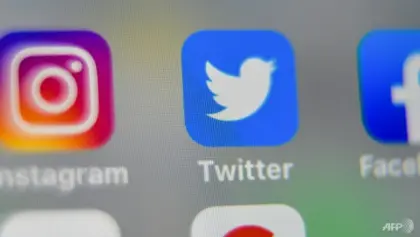In a recent BBC analysis, top experts examined how Ukraine is winning the war on social media.
They discussed how social media has altered how the conflict in Ukraine is covered and even perceived globally. Indeed, the Ukrainian government and military have used various social media platforms to highlight their accomplishments – and more importantly, Russia’s failures – bolstered by images posted by citizens.
JOIN US ON TELEGRAM
Follow our coverage of the war on the @Kyivpost_official.
The expert analysis tells us that such posts have helped to unite the Ukrainian people, even if Kyiv’s estimates of Russian troop losses and the number of tanks destroyed/captured were exaggerated.
“Since the very first days of the war in Ukraine, social media has been used in many interesting ways,” Dr. Lasha Tchantouridze, professor and director of Norwich University’s graduate diplomacy and international relations programmes, pointed out.
The Ukrainian government has used social media well, but private entities, organisations, and people who support Ukraine’s cause have been even more successful. Through the use of social media, content from Western and Russian opposition sources has been able to successfully cross-pollinate.
“Private entities have helped Ukraine by generating and disseminating content and by amplifying Kyiv’s messages,” continued Tchantouridze.
Most of the effort is being made by people who could be described as anti-Russian rather than strictly pro-Ukrainian. Furthermore, it is not just Kyiv’s media machine that has been posting on Twitter and uploading/sharing videos and images from the front lines.

EU Transfers €1.5 Bln Raised From Russian Assets for Ukraine
“Support for Ukraine has come from rather unexpected circles,” argued Tchantouridze. “A very significant contribution has been made by Russian opposition groups and activists, some of them active in Russia and others operating from outside the country. Such a synthesis of information has helped to generate and strengthen pro-Ukrainian public opinion in the West.”
Along with its failures on the battlefield, Russia has also largely failed in its use of social media. However, Moscow had a significant disadvantage in this area from the moment its unprovoked invasion started in late February.
Dr. William Pelfrey Jr., a professor at Virginia Commonwealth University’s Wilder School of Government and Public Affairs, remarked: “The invasion of Ukraine inspired a host of government actions in the U.S. and Europe, but these tend to exist on a largescale, amorphous level.”
The swift ban on Russia from many services may have had little impact, according to some experts. It was unlikely that the Kremlin would ever employ social media in Ukraine’s manner.
Rebecca Weintraub, emerita founding director of the University of Southern California Annenberg School for Communication and Journalism, said:
“The difference between how Ukraine and Russia have used social media is the difference between an open society and a closed one. While Russia is unfortunately efficient and effective in spreading disinformation, they do not encourage – in fact quite viciously discourage – public social media sharing.”
Experts point out that Russia has ultimately stifled all independent media; and due to the Kremlin’s inability to censor social media content, it has chosen to severely restrict its use.
“Russia wants and needs to stick to its narrative of justification for beginning and continuing it,” continued Weintraub.
According to the BBC report, even pro-Kremlin organisations have been subject to strict regulations and forced to adhere to a small number of stale messages. This has limited their ability to be creative. Additionally, pro-Russian remarks on Twitter and other platforms have been swiftly exposed as untrue.
This is not to say that social media has been totally off-limits to Russia, according to Tchantouridze, who said: “The Russian government has selectively banned and restricted social networks from operating in Russia but has permitted [some] to operate in the country.”
According to analysts such as Weintraub, the Ukrainian people have been able to share images of the effects of the conflict on social media, which has undoubtedly helped to refute the Russian narrative used to support its so-called special military operation.
Read the original report here.
You can also highlight the text and press Ctrl + Enter






